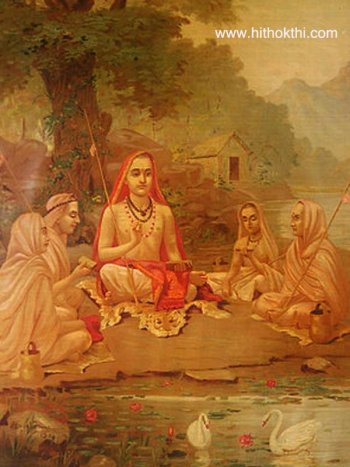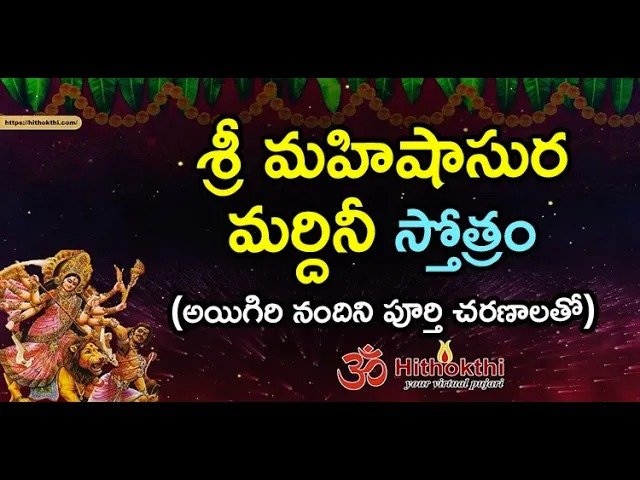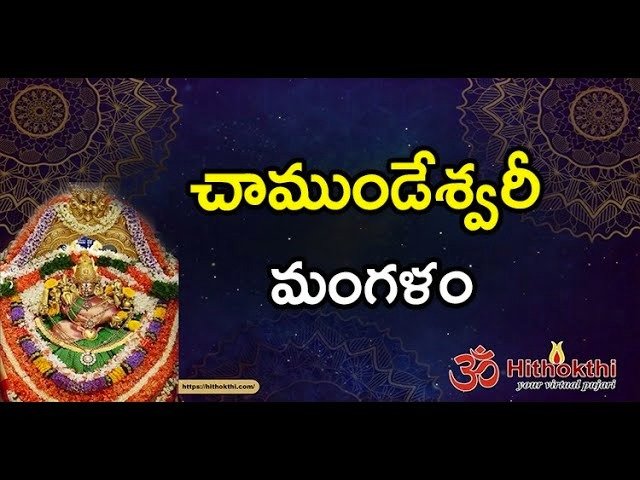Katha Upanishad Part 2

Part Second
I
Yama said: The good is one thing and the pleasant another. These two, having different ends, bind a man. It is well with him who chooses the good. He who chooses the pleasant misses the true end.
II
The good and the pleasant approach man; the wise examines both and discriminates between them; the wise prefers the good to the pleasant, but the foolish man chooses the pleasant through love of bodily pleasure.
III
O Nachiketas after wise reflection thou hast renounced the pleasant and all pleasing forms. Thou hast not accepted this garland of great value for which many mortals perish.
IV
Wide apart are these two,–ignorance and what is known as wisdom, leading in opposite directions. I believe Nachiketas to be one who longs for wisdom, since many tempting objects have not turned thee aside.
With this second part, the Ruler of Death begins his instructions regarding the great Hereafter. There are two paths,–one leading Godward, the other leading to worldly pleasure. He who follows one inevitably goes away from the other; because, like light and darkness they conflict. One leads to the imperishable spiritual realm; the other to the perishable physical realm. Both confront a man at every step of life. The discerning man distinguishing between the two, chooses the Real and Eternal, and he alone attains the highest, while the ignorant man, preferring that which brings him immediate and tangible results, misses the true purpose of his existence. Although Yama put before Nachiketas many temptations to test his sincerity and earnestness, he judging them at their real value, refused them all, saying “I have come from the mortal realm, shall I ask for what is mortal? I desire only that which is eternal.” Then Death said to him: “I now see that thou art a sincere desirer of Truth. I offered thee vast wealth, long life and every form of pleasure which tempts and deludes men; but thou hast proved thy worthiness by rejecting them all.”
V
Fools dwelling in ignorance, yet imagining themselves wise and learned, go round and round in crooked ways, like the blind led by the blind.
VI
The Hereafter never rises before the thoughtless child (the ignorant), deluded by the glamour of wealth. “This world alone is, there is none other”: thinking thus, he falls under my sway again and again.
There are many in the world, who, puffed up with intellectual conceit, believe that they are capable of guiding others. But although they may possess a certain amount of worldly wisdom, they are devoid of deeper understanding; therefore all that they say merely increases doubt and confusion in the minds of those who hear them. Hence they are likened to blind men leading the blind. The Hereafter does not shine before those who are lacking in the power of discrimination and are easily carried away therefore by the charm of fleeting objects. As children are tempted by toys, so they are tempted by pleasure, power, name and fame. To them these seem the only realities. Being thus attached to perishable things, they come many times under the dominion of death. There is one part of us which must die; there is another part which never dies. When a man can identify himself with his undying nature, which is one with God, then he overcomes death.
VII
He about whom many are not even able to hear, whom many cannot comprehend even after hearing: wonderful is the teacher, wonderful is he who can receive when taught by an able teacher.
Throughout the Vedic Scriptures it is declared that no one can impart spiritual knowledge unless he has realization. What is meant by realization? It means knowledge based on direct perception. In India often the best teachers have no learning, but their character is so shining that every one learns merely by coming in contact with them. In one of the Scriptures we read: Under a banyan tree sat a youthful teacher and beside him an aged disciple. The mind of the disciple was full of doubts and questions, but although the teacher continued silent, gradually every doubt vanished from the disciple’s mind. This signifies that the conveying of spiritual teaching does not depend upon words only. It is the life, the illumination, which counts. Such God–enlightened men, however, cannot easily be found; but even with such a teacher, the knowledge of the Self cannot be gained unless the heart of the disciple is open and ready for the Truth. Hence Yama says both teacher and taught must be wonderful.
VIII
When taught by a man of inferior understanding, this Atman cannot be truly known, even though frequently thought upon. There is no way (to know It) unless it is taught by another (an illumined teacher), for it is subtler than the subtle and beyond argument.
IX
O Dearest, this Atman cannot be attained by argument; It is truly known only when taught by another (a wise teacher). O Nachiketas, thou hast attained It. Thou art fixed in Truth. May we ever, find a questioner like thee.
Knowledge of the Atman or Self cannot be attained when it is taught by those who themselves lack in real understanding of It; and who therefore, having no definite conviction of their own, differ among themselves as to its nature and existence. Only he who has been able to perceive the Self directly, through the unfoldment of his higher nature, can proclaim what It actually is; and his words alone carry weight and bring illumination. It is too subtle to be reached by argument. This secret regarding the Hereafter cannot be known through reasoning or mere intellectual gymnastics. It is to be attained only in a state of consciousness which transcends the boundary line of reason.
X
I know that (earthly) treasure is transitory, for the eternal can never be attained by things which are non–eternal. Hence the Nachiketa fire (sacrifice) has been performed by me with perishable things and yet I have attained the eternal.
XI
O Nachiketas, thou hast seen the fulfillment of all desires, the basis of the universe, the endless fruit of sacrificial rites, the other shore where there is no fear, that which is praiseworthy, the great and wide support; yet, being wise, thou hast rejected all with firm resolve. The teacher, saying that the imperishable cannot be attained by the perishable, shows that no amount of observance of rituals and ceremonies can earn the imperishable and eternal. Although the Nachiketa fire–sacrifice may bring results which seem eternal to mortals because of their long duration, yet they too must come to an end; therefore this sacrifice cannot lead to the final goal. Yama praises Nachiketas because, when all heavenly and earthly pleasures, as well as knowledge of all realms and their enjoyments were offered him, yet he cast them aside and remained firm in his desire for Truth alone.
XII
The wise, who by means of the highest meditation on the Self knows the Ancient One, difficult to perceive, seated in the innermost recess, hidden in the cave of the heart, dwelling in the depth of inner being, (he who knows that One) as God, is liberated from the fetters of joy and sorrow.
XIII
A mortal, having heard and fully grasped this, and having realized through discrimination the subtle Self, rejoices, because he has obtained that which is the source of all joy. I think the abode (of Truth) is open to Nachiketas. The Scriptures give three stages in all spiritual attainment. The aspirant must first hear about the Truth from an enlightened teacher; next he must reflect upon what he has heard; then by constant practice of discrimination and meditation he realizes it; and with realization comes the fulfilment of every desire, because it unites him with the source of all. Having beheld this, a man learns that all sense pleasures are but fragmentary reflections of that one supreme joy, which can be found in the true Self alone. Yama assures Nachiketas that there is no doubt of his realizing the Truth, because he has shown the highest discrimination as well as fixity of purpose.
XIV
Nachiketas said: That which thou seest, which is neither virtue nor vice, neither cause nor effect, neither past nor future (but beyond these), tell me That.
XV
Yama replied: That goal which all the Vedas glorify, which all austerities proclaim, desiring which (people) practice Brahmacharya (a life of continence and service), that goal I tell thee briefly–it is Aum. What name can man give to God? How can the Infinite be bound by any finite word? All that language can express must be finite, since it is itself finite. Yet it is very difficult for mortals to think or speak of anything without calling it by a definite name. Knowing this, the Sages gave to the Supreme the name A–U–M which stands as the root of all language. The first letter “A” is the mother–sound, being the natural sound uttered by every creature when the throat is opened, and no sound can be made without opening the throat. The last letter “M,” spoken by closing the lips, terminates all articulation. As one carries the sound from the throat to the lips, it passes through the sound “U.” These three sounds therefore cover the whole field of possible articulate sound. Their combination is called the Akshara or the imperishable word, the Sound–Brahman or the Word God, because it is the most universal name which can be given to the Supreme. Hence it must be the word which was “in the beginning” and corresponds to the Logos of Christian theology. It is because of the all–embracing significance of this name that it is used so universally in the Vedic Scriptures to designate the Absolute.
XVI
This Word is indeed Brahman. This Word is indeed the Supreme. He who knows this Word obtains whatever he desires.
XVII
This is the best Support, This is the highest Support; he who knows this Support is glorified in the world of Brahman. This sacred Word is the highest symbol of the Absolute. He who through meditating on It grasps Its full significance, realizes the glory of God and at once has all his desires satisfied, because God is the fulfilment of all desires.
XVIII
This Self is never born, nor does It die. It did not spring from anything, nor did anything spring from It. This Ancient One is unborn, eternal, everlasting. It is not slain even though the body is slain.
XIX
If the slayer thinks that he slays, or if the slain thinks that he is slain, both of these know not. For It neither slays nor is It slain.
XX
The Self is subtler than the subtle, greater than the great; It dwells in the heart of each living being. He who is free from desire and free from grief, with mind and senses tranquil, beholds the glory of the Atman. Although this Atman dwells in the heart of every living being, yet It is not perceived by ordinary mortals because of Its subtlety. It cannot be perceived by the senses; a finer spiritual sight is required. The heart must be pure and freed from every unworthy selfish desire; the thought must be indrawn from all external objects; mind and body must be under control; when the whole being thus becomes calm and serene, then it is possible to perceive that effulgent Atman. It is subtler than the subtle, because It is the invisible essence of every thing; and It is greater than the great because It is the boundless, sustaining power of the whole universe; that upon which all existence rests.
XXI
Though sitting, It travels far; though lying, It goes everywhere. Who else save me is fit to know that God, who is (both) joyful and joyless? The Self is all–pervading, hence It is that which sits still and that which travels, that which is active and that which is inactive. It is both stationary and moving, and It is the basis of all forms of existence; therefore whatever exists in the universe, whether joy or joylessness, pleasure or pain, must spring from It. Who is better able to know God than I myself, since He resides in my heart and is the very essence of my being? Such should be the attitude of one who is seeking.
XXII
The wise who know the Self, bodiless, seated within perishable bodies, great and all– pervading, grieve not. Then a wise man through the practice of discrimination has seen clearly the distinction between body and Soul, he knows that his true Self is not the body, though It dwells in the body. Thus realizing the indestructible, all–pervading nature of his real Self, he surmounts all fear of death or loss, and is not moved even by the greatest sorrow.
XXIII
This Self cannot be attained by study of the Scriptures, nor by intellectual perception, nor by frequent hearing (of It); He whom the Self chooses, by him alone is It attained. To him the Self reveals Its true nature. We may imagine that by much study we can find out God; but merely hearing about a thing and gaining an intellectual comprehension of it does not mean attaining true knowledge of it. Knowledge only comes through direct perception, and direct perception of God is possible for those alone who are pure in heart and spiritually awakened. Although He is alike to all beings and His mercy is on all, yet the impure and worldy–minded do not get the blessing, because they do not know how to open their hearts to it. He who longs for God, him the Lord chooses; because to him alone can He reveal His true nature.
XXIV
He who has not turned away from evil conduct, whose senses are uncontrolled, who is not tranquil, whose mind is not at rest, he can never attain this Atman even by knowledge. Yama having first described what the Atman is, now tells us how to attain It. man must try to subdue his lower nature and gain control over the body and senses. e must conquer the impure selfish desires which now disturb the serenity of his mind, that it may grow calm and peaceful. In other words, he must live the life and develop all spiritual qualities in order to perceive the Atman.
XXV
Who then can know where is this mighty Self? He (that Self) to whom the Brahmanas and Kshatriyas are but food and death itself a condiment. This text proclaims the glory and majesty of the Supreme. The Brahmanas stand for spiritual strength, the Kshatriyas for physical strength, yet both are overpowered by His mightiness. Life and death alike are food for Him. As the light of the great sun swallows up all the lesser lights of the universe, similarly all worlds are lost in the effulgence of the Eternal Omnipresent Being.







